PAST ISSUES
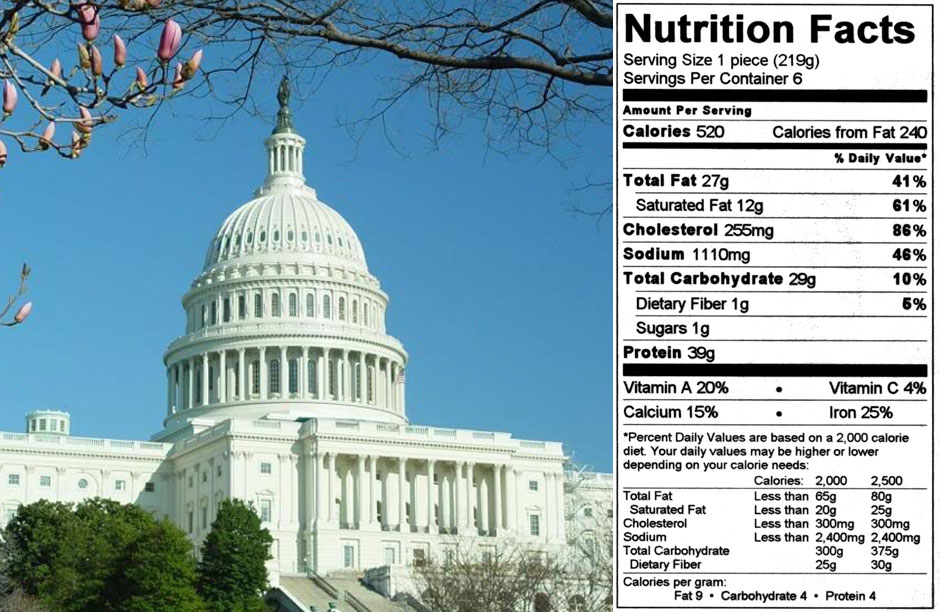 Food Lobbying can be a dirty business where the facts aren't always what they seem.
Food Lobbying can be a dirty business where the facts aren't always what they seem.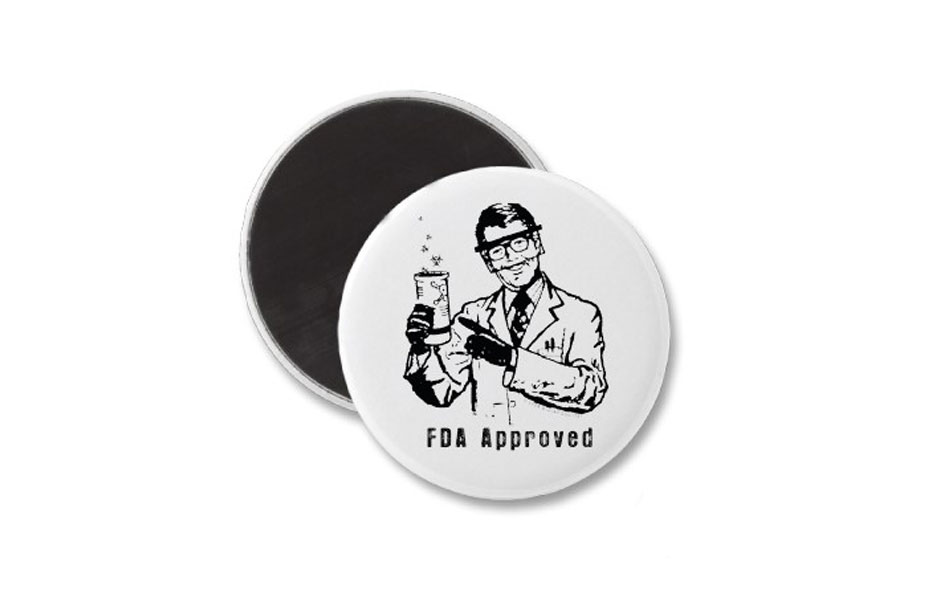 The FDA is to the food lobbyist as the Wizard of Oz was to Dorothy...
The FDA is to the food lobbyist as the Wizard of Oz was to Dorothy...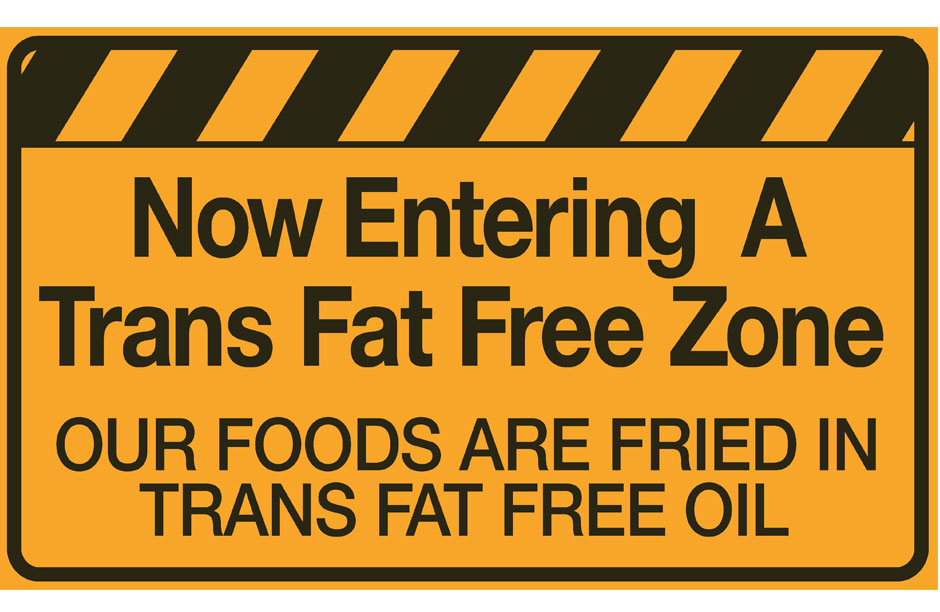 The plight of Trans Fat is one of Capitol Hill's great success stories.
The plight of Trans Fat is one of Capitol Hill's great success stories.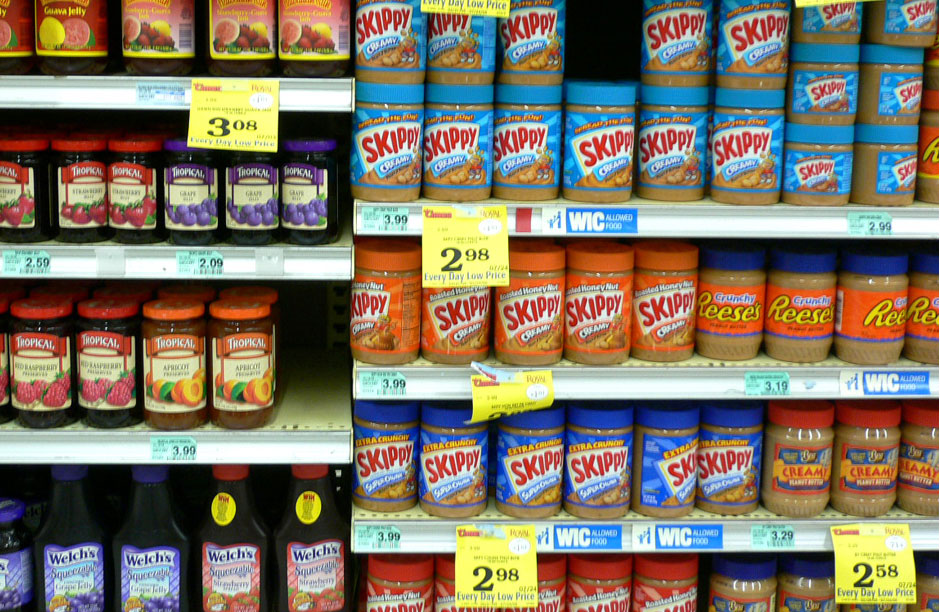 Peanut Butter has been effected by Capitol Hill policy on more than one occasion - first it's ingredients came under scrutiny as part of the trans fat elimination movement and more recently it has been banned from several elementary schools due to fears over peanut allergies.
Peanut Butter has been effected by Capitol Hill policy on more than one occasion - first it's ingredients came under scrutiny as part of the trans fat elimination movement and more recently it has been banned from several elementary schools due to fears over peanut allergies.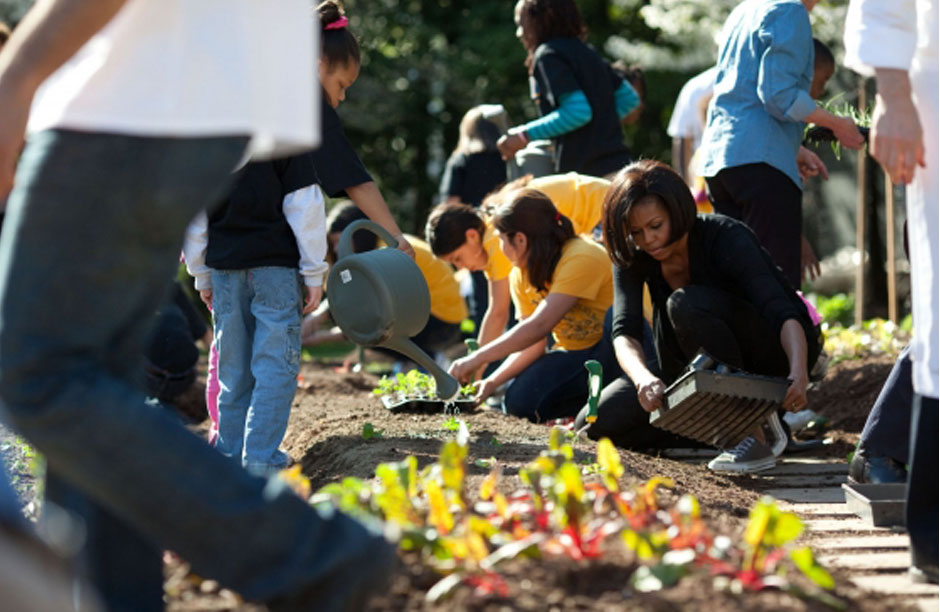 As First Lady one of Michelle Obama's first initiatives targeted the lunch box throughout America's schools.
As First Lady one of Michelle Obama's first initiatives targeted the lunch box throughout America's schools.
From the Hill to Your Table
By Anna Louie SussmanA Day in the Life of a Food Lobbyist:
Salmonella in peanut butter. The price of a wedge of Parmesan cheese. Those weird growth hormones in milk. These sound like issues to be negotiated by the consumer, in consultation with her stomach and her wallet, but not the stuff of federal legislation. Yet every now and then, talk surfaces in the papers about farm subsidies and food-safety regulations, or trans fats and nutritional labeling. At the local level, parents are campaigning against fast-food companies’ infiltration of their children’s cafeterias, and the First Lady made a splash by planting an organic vegetable garden in her backyard.
Food can, if one lets it, be a political statement. Where one shops, and why, can be a conscious “vote” for a certain set of values: frugality or indulgence, local or imported, organic or not. But the consumer’s decision takes place against a backdrop of actual Capitol Hill politicking, that can have profound ramifications on what we eat. In January 2009, salmonella reared its ugly head, sickening hundreds of people who’d eaten peanut butter traced back to a single inadequately monitored factory in Georgia, and leading to a Senate bill on food safety due to be debated in April 2010. Another bill currently before the Senate would allow the US Agriculture Department to set nutritional standards for all food sold on school grounds, including the junkiest of all junk foods, that kids delight in purchasing, away from their parents’ watchful eyes. And the House has the power to nourish – or starve – the Food and Drug Administration with sufficient resources to enforce the laws of the land.
Over the past twenty years, the food and beverage industry has spent more than $100 million dollars lobbying members of Congress to tweak legislation and earmarks in their favor, according to OpenSecrets.org. The intensity of the lobbying – or “communicating,” as one lobbyist clarified – ebbs and flows with election cycles and legislative calendars. Herein, a senior food lobbyist describes a typical April day on the Hill. Out of courtesy to her employer, she will remain anonymous.
Morning: Breakfast for me is a coffee latte, with fresh roast beans we have delivered every few weeks to the house. We use whole milk, although my kids drink skim. Occasionally, I’ll have toast if we have fresh bread in the house, and sometimes I’ll grab a mid-morning muffin if I get hungry. The kids eat cereal and fresh fruit, or we make fruit smoothies with frozen berries and yogurt.
I get to the office and begin answering emails. Congress is back in session after their recess – it’s going to be a busy week!
It’s important to remember that a lobbyist is first and foremost a communicator. There are lobbyists not just for the food industry, but for every possible interest group you can think of – food and agriculture is no different than any other segment. Within it, you’ve got the organic people, the sustainable people, the consumer rights people, and the manufacturing groups – just to name a few.
The sugar and rice industries, for example, have huge lobbying arms, and spend a ton of money trying to convince lawmakers to support their crops, when in fact it would be more economical for developing countries to grow sugar and export it.
Our primary role is to communicate on policy that represents who we’re working for. So depending on whether you’re working directly for a specific company, or for a trade association, or for a consulting firm or law firm, you’re going to be spending a good deal of time communicating with the person paying your salary.
So the morning could be taken up with a few conference calls – I tell our constituents what’s going on on the Hill, explain what the different legislation means for them, hear out their concerns, and get input from our on-staff experts.
My clients won’t necessarily oppose everything just because it’s coming from Washington, but it’s my job to relay their concerns to the right people. That means targeting representatives from the right states, or, more importantly, knowing who’s on what committee.
As lunchtime rolls around, I’ll either head to a fundraising event, meet with other lobbyists in related industries, or have lunch at my desk. The particular industry I’m in doesn’t have as much money as some others, so I don’t go to too many events, maybe one or two a week. Some lobbyists go to two or three a day, and these can be sponsored by different political groups, like the Blue Dog Democrats or the Republican Senatorial Committee. We try and help those groups develop policy that reflects the concerns of our constituents.
Of course, our business is partly about giving away money, and people think that’s bad – it’s not my favorite part of it. But if you only work inside the government, you don’t ever see where the rubber hits the road, and how difficult it can be for businesses to meet the bottom line.
If there are several industries who see eye-to-eye on a specific piece of legislation, we can bring that to the Hill and make a much stronger case, so I’ll frequently have lunch with lobbyists from other associations, and we’ll compare notes.
If I’m eating lunch, it’ll usually be a quick salad at my desk – my favorite is Cosi signature salad or a Greek salad. I don’t like meat in my salads, but I’m not a vegetarian. Sometimes a sandwich, but if I have a sandwich I often feel like eating potato chips – my weakness. In winter I’ll often grab a cup of soup with a big roll slathered with real butter. Although I pack lunch for my kids, I rarely pack lunch for myself.
After lunch, it’s back to communicating. A lot of what we do as lobbyists is try to arrange meetings between our constituents and the relevant lawmakers, such as a visit by a member of congress or a congressional staffer to a farm or a slaughterhouse. This is part of the communication – we’re saying “Please understand the industry from the ground up, so that when you’re making decisions, you know how it affects people.”
This is also important information for me to know, so I spend a lot of time consulting with our own experts, or our consultants. I’ll call our legal officer, for example, to ask “What are the implications for such-and-such piece of legislation?” Then I have to make sure our press people know what’s going on, so they give the right information to reporters.
After work, I’ll head home to dinner with my family. Dinner duty is split with my spouse, depending on who gets home first and whether I have an evening event to attend. We eat a lot of pasta and always have a simple salad alongside, but not the lettuce in bags. We try to get fish once a week, but that doesn’t always happen, and chicken and beef tend to dominate — stir frys, and fajitas are quick and easy for us. We shop mostly at the Giant supermarket near us, although now that there’s a farmer’s market in DC I’m making an effort to get there more regularly.
In reality, we have an incredible food program in this country. There’s a lot of food, great variety – our problem is obesity. We have the luxury of asking ourselves, since we have the world’s safest food supply – how can we make it better?
On a personal note, I find a lot of this back-to-nature, DIY rhetoric, when taken to the extreme, offensive to women’s rights. I want both worlds: I love organic, fresh stuff, but i’m a full-time working mom. Please don’t take away my convenient stuff.
This is one reason I really respect the First Lady. She’s not telling everyone to grow their own food. She’s saying to the food industry: What can you do to help? And we as lobbyists go back to our members and ask “What can we do for consumers?” She’s trying to do a lot through voluntary initiatives, but as of now none of these efforts have translated to legislation. It will be interesting to see if it does.
All in all, it’s going to be a busy year!